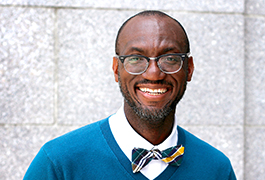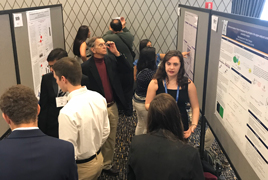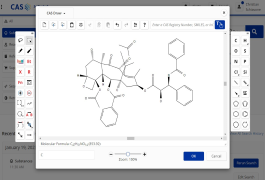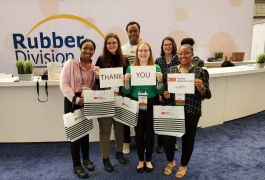Fresh Ideas for Sharing the Value of Chemistry through Public Outreach
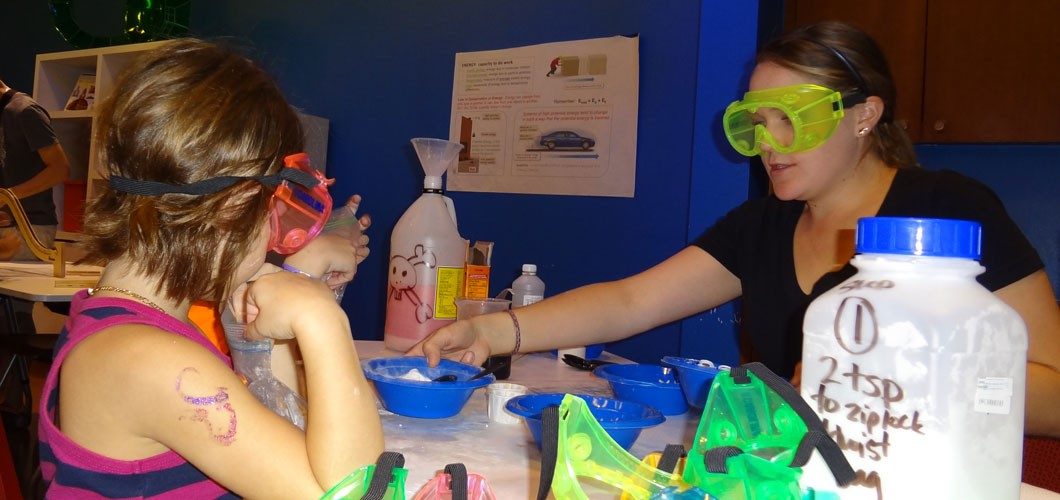
The COVID-19 pandemic, climate change, and a host of advances have made science more relevant than ever to our daily lives. Yet the Internet is rife with conspiracies and false scientific claims — DNA-mutating vaccines and genetically modified glow-in-the-dark trees, for example. As scientists, it is incumbent upon us to highlight the benefits and contributions of science to society so that citizens are not misled by misinformation. Doing outreach in your community can go a long way to extinguish negative perceptions and educate the public about important scientific milestones that improve people's lives.
ACS considers clear communication from scientists to the public so vital that it has made science communication one of its five strategic goals. ACS also recognizes members’ exceptional achievements in public communication through the Helen M. Free Award for Public Outreach, named after the first winner of the award. Since 1995, the award has sought to recognize individuals who support programs, presentations, and events in a variety of settings to make chemistry relatable and fun. As members of the Awards Working Group and the ACS Committee on Public Relations and Communications (CPRC), we want to share some ideas from this talented pool of chemistry advocates to inspire you to take on new projects on your outreach journey.
Stage Bill Nye-type chemical demonstrations in public settings
Chemical demonstrations are a draw for all ages. Make sure you plan extensively, incorporate safe practices, can explain the science and answer questions in simple language, and are comfortable with the demos you carry out. Think about conducting demonstrations in non-science settings–be creative! If you are in your church, dorm, or other community group, volunteer to do a demo show before a meeting or at a community picnic. You can even stage activities remotely through videos or teleconferences.
Create exhibits for a science museum, library, or common space
If being on stage isn’t in your comfort zone, consider curating an exhibit to display in a public setting. If you have a connection with a library or museum, contact them about it. You can get ideas from the ACS Student Chapter, ChemClub, and Outreach websites. You can also expand to other locations, such as common areas on your campus, hallways of local schools, and community centers. Exhibits are also an easy way to generate high impact from a distance.
Tap into pop culture to dramatize chemistry and make it relatable
So many TV shows, movies, and streaming programs are filled with pseudoscientific principles that are either badly demonstrated or just imaginary (what is a “Pym Particle” anyway?). Write an article or make a video explaining how a particular TV show episode or movie accurately upholds science or violates it. Start a blog or write and submit an article for publication in a regional newspaper. Get inspired by Sibrina Collins’s use of vibranium to discuss the periodic table and get exploring!
Organize science-related summer activities for kids
Many summer camps and daycare centers are willing to host presenters to stimulate the minds of kids in camp. Contact local camp organizers, civic organizations, or churches with your idea for a one-time visit or a series of presentations. Again, you can do hands-on or virtual chemistry activities depending on the restrictions in your area.
Work with a youth organization to increase kids’ interest in chemistry
With your knowledge and background, you can help kids learn accurate information about environmental challenges related to ecology, climate change, the extinction of species, etc. You can partner with the Girl Scouts and Boy Scouts organizations to help kids earn STEM badges or help other community organizations that serve kids, such as 4-H and Big Brothers Big Sisters.
Adapt or develop activities for students with disabilities
A lot of chemistry outreach activities overlook the needs of students with disabilities. Reach out to the ACS Committee on Chemists with Disabilities (CWD) for help auditing and adapting your current activities or developing new ones. CWD’s handbook, “Teaching Chemistry to Students with Disabilities,” will help you ensure a safe and inclusive experience for all of your outreach participants. You may need to obtain specialized equipment, such as that from Independence Science; be sure to look into funding from your student association or ACS to help.
Expand your activities to reach new communities
It’s easy to focus outreach on groups close to campus or on organizations you have always worked with. But reaching new communities can bring new perspectives to you in addition to bringing science to new audiences. Faculty members may have connections with local schools or PTA groups that would love to connect with you. You can also work with your ACS local section, ACS Project SEED, and the ACS Committee on Minority Affairs to identify and reach new audiences.
Develop presentations for the general public on uses of chemistry for new materials, medicine, energy, agriculture, and the environment
There is always something current to share with the public that impacts their lives (looking at you, mRNA COVID-19 vaccines!). Get ideas for interesting topics from C&EN, the ACS press room, or ACS journals, and figure out ways to explain current research covered in those publications to the public. Use your network to find venues for presentations, videos, or virtually hosted Science Cafés to discuss the latest advances.
Everyone has different interests, capacities, and time, but remember that no outreach effort is too small. The National Charter of the American Chemical Society lists among the purposes of the society “to encourage in the broadest and most liberal manner the advancement of chemistry in all its branches” and “to increase and diffuse chemical knowledge.” Clearly, chemistry has the power to intrigue our minds and improve our lives. CPRC provides tools and resources for ACS members, local sections, and divisions to communicate the value of chemistry to a variety of audiences. As part of CPRC’s important work, we have provided these examples in the creative spirit of the Helen Free Award and its namesake with the hope that they will help you communicate the many uses and significance of our central science chemistry!
Need help with planning and executing?
Check out Chemists Celebrate Earth Week and National Chemistry Week resources.
Each year, ACS provides themed resources and activities for Chemists Celebrate Earth Week (April) and National Chemistry Week (October). Save yourself some planning work by tapping into these sites.
Partner with an ACS local section or division.
Many ACS local sections include public relations committees whose mission is to help ACS members carry the story of chemistry to the general public. ACS divisions embody cutting-edge chemical expertise (especially the Younger Chemists Committee) that can enlighten the public about chemistry. And maybe there is another student chapter at a nearby college or a local high school ACS ChemClub that you can join forces with and plan events.

